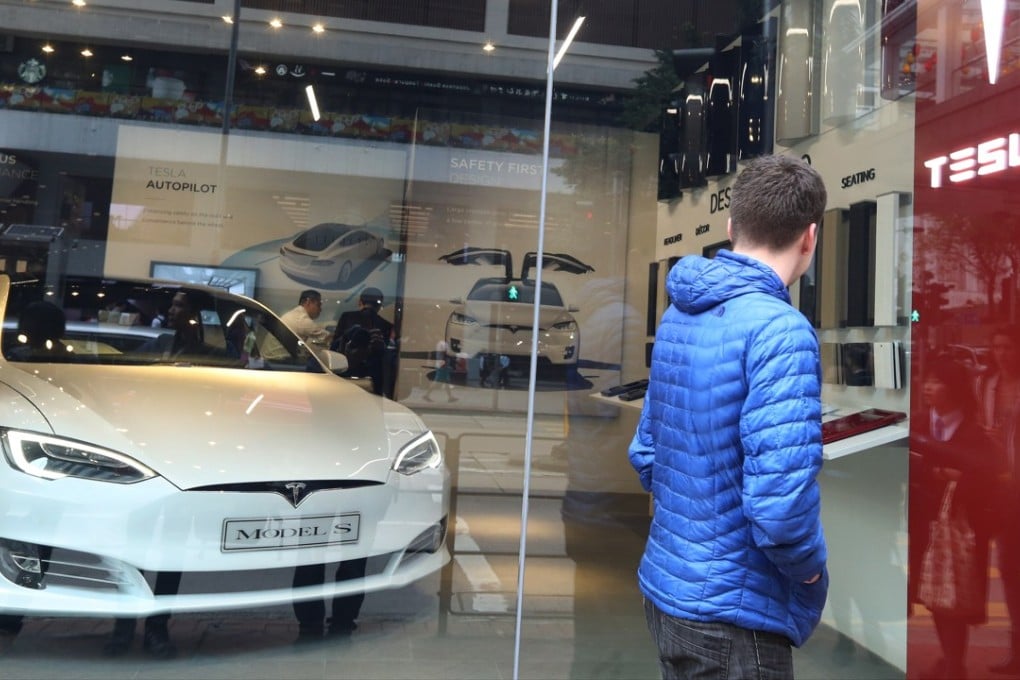Hong Kong’s electric car market comes to emergency stop after tax waiver scrapped, but does that really mean air pollution will be worse?
There were no first registrations of electric private cars in April after tax waiver scrapped; while some are criticising the government for caving in to the petrol lobby, others believe waiver simply made city’s already bad congestion worse

In the gloomy indoor car park at the Cyberport 2 business park on Hong Kong Island, a line of immaculate electric vehicles (EVs) are plugged into superchargers adorned with a glowing Tesla logo.
Two floors above, at the Recharge café, members of Charged Hong Kong are discussing the impact of recent changes to the tax waiver policy on EVs over coffee at one of their regular Sunday morning meet-ups.
“To really be aware of Hong Kong air pollution, you need a drive an open-top EV through Central and just try breathing,” says Mark Webb-Johnson, chairman and co-founder of the group, which advocates EVs to improve the city’s air quality.
The government’s decision to scrap the first registration tax waiver on electric vehicles – introduced to cut air pollution – has left advocates like Webb-Johnson and his 700 or so fellow club members angry and bewildered.
Since the April 1 introduction of the first registration tax on EVs, vehicle prices have shot up by 50 to 80 per cent, depending on the model, with tax relief now capped at HK$97,500. The impact has been immediate, and appears to have killed off the future of EVs in Hong Kong overnight.

Transport Department figures indicate there is a total of 10,589 private EVs registered in the city, and 2,964 of them were registered in March 2017 alone. That healthy growth then hit a red light when not a single private EV was registered in April.